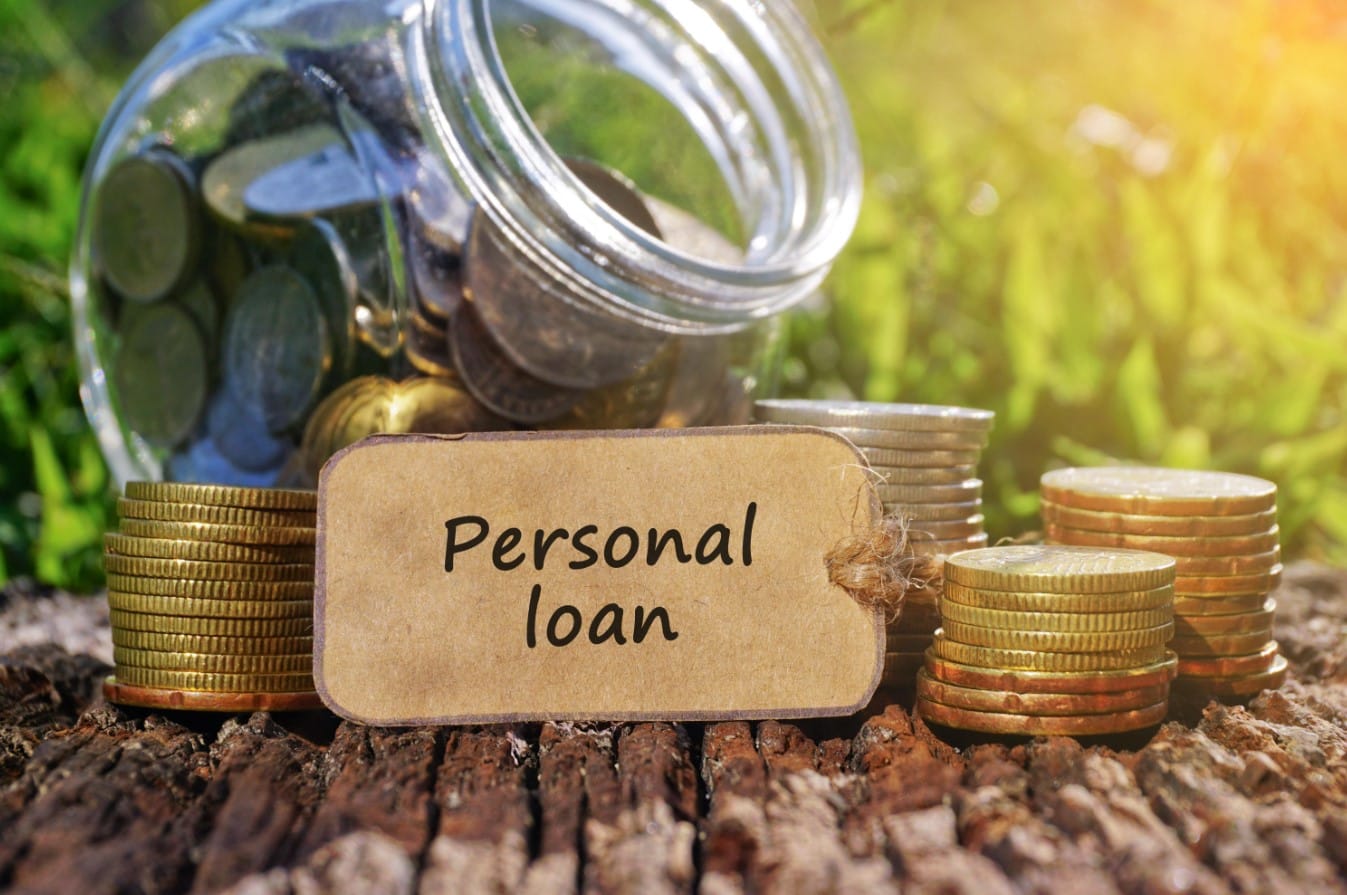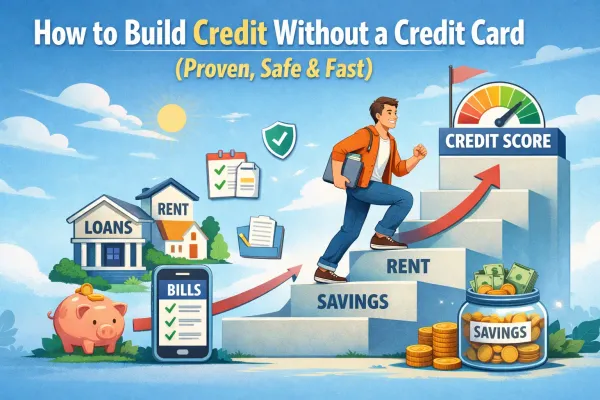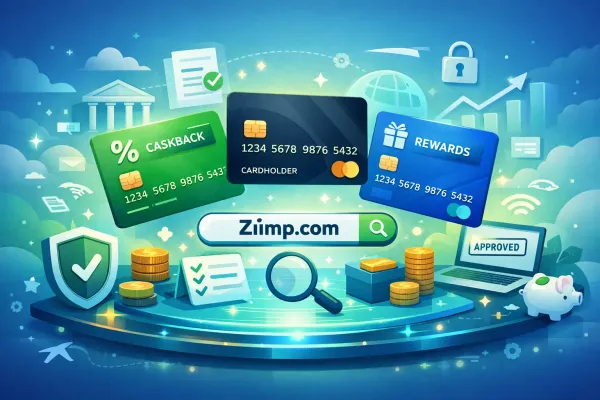What You Should Know Before Taking Out a Personal Loan
Taking out a personal loan can be a smart financial move when you need extra funds for various reasons, such as consolidating debt, covering emergency expenses, or making a big purchase. However, it's crucial to understand the ins and outs of personal loans before diving in.

A personal loan can be a smart financial move, allowing you to access money for any number of reasons including the ability to pay down debt (like credit cards) or cover unforeseen costs. But, for most people, it is critical to know how personal loans work prior you commit. I am going to explain everything about personal loans in this ultimate guide so that you can make the right decision on taking a loan and avoid some of the mistakes made during my first attempt.
Understanding Personal Loans
Personal loans are a type of installment credit where you borrow a fixed amount of money in one go and pay it back over time with interest, typically on regular monthly installments. Typically, you can get these loans unsecured (in other words they do not need your house or car as collateral). Here’s what you need to know about the basics of personal loans.
Some types of personal loans include: Personal loans are available in several forms to accommodate different needs. The most common types include:
- Unsecured Personal Loans: Unsecured personal loans do not require collateral, securing them is based on creditworthiness.
- Secured Personal Loans: These loans are secured by a savings account or certificate of deposit.
- Fixed-Rate Loans: These come with an interest rate that remains the same over time, meaning predictable monthly payments.
- Variable-rates Loans: Those are loans that have interest rates that can fluctuate after a while and thereby affect monthly installments.
Loan Amounts and Terms Personal loan amounts range from $5,000 to more than $100,000 or even higher if you are qualifying with a well-established lender. Loans are typically offered with terms of one to seven years, and the longer your term is, the lower monthly payments you will have but higher total interest costs.
Evaluating Your Personal Loan Needs

Before you apply for a personal loan, here are some questions to answer to sense that adequately: Consider the following:
Why do you wish to get the loan? What you can generally use a personal loan for
- Debt consolidation
- Home improvement
- Medical expenses
- Major purchases
- Travel or vacation
- Wedding expenses
Personal Loan Alternatives: Before taking out a personal loan, consider other financing alternatives that are more tailored to your situation or cost less:
- Promotional rates or low-interest offers on credit cards
- Home-Equity Loans or Lines of Credit
- Asking for help from friends and family
- Dipping into your savings or emergency fund.
Assess Your Financial Status
Understand Your Financial Position First: A personal loan application requires a good understanding of your finances and whether you will be capable of repaying the loan amount or not. Consider these factors:
Credit Score: Your credit score has a big impact on whether or not you qualify for a personal loan and if so, what interest rate. You will also want to know what your credit score is, and how you can boost it in advance of applying for pre-approval.
Income and Employment: Lenders will evaluate your income and employment history to ensure you can repay the loan. Ensure you give the right and current details on your earnings and job status.
Debt-to-Income Ratio: Your debt-to-income ratio, which measures your monthly debt payments against how much you earn a month. A better financial health is indicated by a lower DTI ratio and vice-versa which in turn improves your chances of loan approval.
Shopping for the Best Loan
Not all personal loans are created equal. To find the best loan for your needs, follow these steps:
Compare Lenders: Compare lenders, including banks, credit unions, and online lenders If you are refinancing and looking around to see what different companies can offer, this is where you would compare Who offers the best interest rates or fees Loan amounts Terms
Check Interest Rates: Interest rates on personal loans can vary widely based on your credit score, the loan amount, and the loan term. Look for the lowest rates available to minimize your cost of borrowing.
Understand fees: Be aware of any fees associated with the loan, such as origination fees, late payment fees, and prepayment penalties. These can significantly impact the overall cost of the loan.
Read the Fine Print: You should read every term inside it thoroughly to learn about all offered terms and conditions. Notice the details surrounding when you have to repay, what type of interest rate is associated (e.g., fixed or variable), and any fees/penalties involved so there will be no surprises.
Applying for a Personal Loan
The final step in how to apply is the application process once you have identified a good loan. Here’s what to expect:
Gather Necessary Documents: Gather the documents you will need, which may include:
- Identity proof; (Driver's license, Passport)
- Income verification (check stubs, 20% of tax returns)
- A valid residence-proof document (like light/water/telephone bill, lease/hire agreement)
- Credit history
Submit the Application: Fill out the loan application form accurately and completely. Double-check all information before submitting to avoid delays.
Await Approval: The approval process can take anywhere from a few minutes to several days, depending on the lender. Be patient and responsive if the lender requests additional information.
Understanding Loan Terms and Conditions
Before accepting a personal loan, it’s vital to understand the terms and conditions. Key elements to review include:
Interest Rate Ensure you understand whether the interest rate is fixed or variable and how it affects your monthly payments.
Repayment Schedule Know your repayment schedule, including the due date, payment frequency, and the amount of each installment.
Prepayment Penalties Check if there are any penalties for paying off the loan early. Some lenders charge fees for early repayment, while others do not.
Managing Your Loan
Once your loan is approved and funded, managing it responsibly is crucial. Follow these tips:
Make Timely Payments Ensure you make your payments on time each month to avoid late fees and negative impacts on your credit score.
Set Up Auto-Pay Consider setting up automatic payments from your bank account to ensure you never miss a payment.
Monitor Your Loan Balance Keep track of your loan balance and payment history. This helps you stay on top of your financial situation and avoid surprises.
Potential Pitfalls and How to Avoid Them
While personal loans can be beneficial, there are potential pitfalls to be aware of:
High Interest Rates If you have a low credit score, you may be offered a high interest rate, which can make the loan costly. Consider improving your credit score before applying.
Hidden Fees Some lenders may have hidden fees that increase the cost of the loan. Always read the fine print and ask for clarification if needed.
Borrowing More Than You Need Avoid the temptation to borrow more than you need. Stick to the amount necessary to cover your expenses to avoid unnecessary debt.
FAQs
What is the average interest rate for personal loans? The average interest rate for personal loans varies based on your credit score and the lender. It typically ranges from 6% to 36%.
Can I get a personal loan with bad credit? Yes, you can get a personal loan with bad credit, but you may face higher interest rates and stricter terms. Consider improving your credit before applying.
How long does it take to get approved for a personal loan? Approval times vary by lender, but you can typically expect a decision within a few minutes to a few days.
Can I use a personal loan for anything? Personal loans can be used for various purposes, but it’s essential to use them responsibly and for legitimate expenses.
What happens if I miss a payment on my personal loan? Missing a payment can result in late fees, increased interest rates, and a negative impact on your credit score. Always strive to make payments on time.
Is it better to get a personal loan from a bank or an online lender? Both options have pros and cons. Banks may offer lower interest rates to existing customers, while online lenders often provide faster approval and more flexible terms.
Conclusion
Taking out a personal loan can be a valuable financial tool when used responsibly. By understanding the types of loans available, assessing your financial situation, shopping for the best terms, and managing your loan wisely, you can make the most of this borrowing option. Always remember to read the fine print, avoid common pitfalls, and make timely payments to maintain a healthy financial profile.




